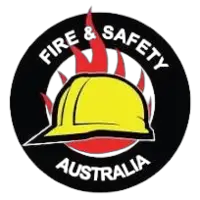
Courses for beginners
There is 1 course available in Darwin Northern Territory for beginner learners with no prior experience or qualifications.
Confine Small Workplace Emergencies in a Facility
- There are no mandated entry requirements.
 Fire And Safety Australia
Fire And Safety Australia
Courses for experienced learners
There are no courses available in Darwin Northern Territory for experienced learners with prior experience or qualifications.
Key questions
How can I become a volunteer firefighter?
To become a volunteer firefighter in Darwin, you may want to consider completing the Confine Small Workplace Emergencies in a Facility. This qualification will equip you with the skills and knowledge necessary for a career in this industry.
Are there training providers in Darwin?
You can train to become a volunteer firefighter by completing a qualification with Fire And Safety Australia. Find a course provider near you. Once you make an enquiry, a course advisor will get in touch to discuss your study options and course fees.
What study modes are available?
There are several campuses within the Darwin area that provide volunteer firefighter training. The closest campus is 245km away from the center of Darwin. Find a course provider that best suits your study needs.
Related occupations
Explore related occupations in the volunteer firefighter sector.
Regional Coordinator
A Regional Coordinator oversees local operations, enhancing service delivery through project management, staff training, and community engagement.
Conservation Manager
A Conservation Manager protects environmental areas from degradation, focusing on wildlife and resource preservation while liaising with stakeholders.
Conservation Trainee
Conservation Trainees assist in environmental projects while training, requiring passion for nature, teamwork, and ability to work outdoors.
Spotter Catcher
A Spotter Catcher locates and relocates wildlife before land clearing, using traps and tracking methods while working outdoors in various conditions.
Park Ranger
Park Rangers maintain national parks, protect wildlife, assist with conservation projects, and educate the public about the environment.
Land Manager
A Land Manager oversees natural resource areas, ensuring conservation and liaising with stakeholders while possessing strong leadership and communication skills.
Indigenous Land Worker
An Indigenous Land Worker preserves natural resources and heritage sites in Aboriginal communities, requiring physical fitness and strong communication skills.
Ecologist
An Ecologist studies ecosystems and biodiversity, conducts field surveys, analyses data, develops conservation plans, and advises on sustainability.
Forester
A Forester manages forests for sustainable use, restoration, and conservation, conducts ecological assessments, and ensures environmental compliance.
Conservation Officer
Conservation Officers create and manage initiatives to safeguard the environment and natural resources through community engagement and fieldwork.
Land Management Officer
A Land Management Officer manages sustainable land use, develops strategies, ensures legal compliance, collaborates on assessments, and promotes biodiversity.
Soil Scientist
A Soil Scientist studies soil properties and health, conducting fieldwork and analysis to support sustainable land use and agricultural practices.
Resource Economist
A Resource Economist evaluates the economic aspects of natural resources, conducting studies and providing recommendations for sustainable management and allocation.
Conservationist
A Conservationist protects natural habitats and wildlife, conducts research, and advocates for sustainable practices to maintain biodiversity.
Conservation Biologist
A Conservation Biologist studies ecosystems and wildlife, conducting fieldwork and data analysis to develop strategies for conserving biodiversity.
Soil Conservationist
A Soil Conservationist manages soil resources, develops conservation plans, conducts soil tests, and advises on sustainable practices to prevent degradation.
Further reading


What do social workers do?
11th December 2019)
